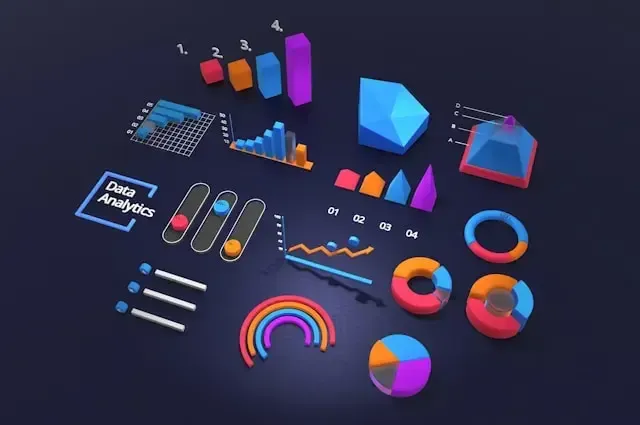This article explores how agri-business is revolutionizing global food security through cutting-edge innovations in biotechnology, sustainability, and digital transformation. It delves into the critical role of technology, inclusive growth, and resilient supply chains, highlighting the future opportunities and challenges facing the agriculture industry in a rapidly changing world.
Introduction.
On the threshold of 10 billion persons by 2050, the future of food security or insecurity remains uncertain. The worsening challenges of population growth and urbanization, and most of all, the disruptions caused by climate change, have put unprecedented pressure on the sector. Today, with its gold-earmarked, large portfolio and innovative capacity, the agri-business has come to the forefront to be reckoned as an agent of change in feeding, nourishing, and economically sustaining the global population. The multifaceted challenges facing this industry are no longer tackled simply with conventional farming techniques; agriculture is solidifying, strengthening, and adapting through the scientific, technological, and business fronts to meet these challenges.
Standing at the center of this process is not only the notion of novation but the belief that innovations in agriculture are capable of transcending simple yield or cost gains and becoming the agents of ecosystem and supply chain shifts. Finally, the agri-business sector can now take the opportunity to innovate how food can be produced, processed, and delivered. From changing the course of technology to transforming the economy and even the forms of governing, agri-businesses are well placed to reinvent the interface between agriculture and the environment, markets, and people. Following recent work in this vein, this article describes the strategic technological advances that are going to define agri-business and hence food systems in the decades to come.
1.Agri-Business and Technological Innovation: The Digital Transformation.
Advancement in digital technology has greatly impacted agriculture, whereby the agri-businesses have adopted the use of a set of precision to increase the performance. Leading this change process is precision agriculture predicated on GPS tractors, drones, and IoT sensors to facilitate the measurement of inputs, including water, fertilizers, and pesticides This shift helps to provide the interventions to its target in certain areas to minimize wastage and positively impact the environment as well as increase the yields of crop production. Furthermore, digital platforms produce timely data that enable rational choice making among farmers as a result, improving the general vulnerability and profitability of their business undertakings.
Outside the farm, AI and machine learning are revolutionalising the agri-business chain by improving on the levels of operational productivity. Since an immense amount of data can be collected and sorted through AI algorithms the weather patterns, the condition of the soil, or market trends can be taken into consideration in order to predict outcomes in the agribusiness and optimise the relations between producers and suppliers. AI will ensure that the markets are conquered by increasing access to them by small-scale producers, and food waste will be reduced because logistics will be efficiently managed. In the current developing agri-business world, the use of these technologies has been widely seen as an important facet in changing the aspect of food production and delivery.
2. Sustainability at the Core: Organic Approaches to Organized Environment.
In the current world, sustainability has become a major factor of consideration, and the agri-business industry has embraced the use of environmentally sustainable farming techniques, policies, products and services that are environmentally friendly and socially responsible as well as economically viable. Regenerative agriculture practices are starting to be seen and embraced as the strategy that not only sustains but also augments the earth’s resource fund. The methods that this approach involves are targeted at improving the quality of soil health by promoting vigor, ensuring that biologic diversity is maintained, and ensuring that ecosystems are allowing to regenerate themselves from threats deeper than those of climate change alone. Large scale firmed need these practices as they participate significantly in cultivating large-scale varieties around the world and for shift to sustainable agriculture.
Water uses efficient innovations like drip irrigation or precision watering are equally a vital next frontier to sustainable farming. These technologies enable farmers to work with water sparingly, spending more time on the ways of using water while helping to feed the world without wasting water. Also hoping to decrease carbon numbers—through lower emissions or machinery,a vats to latch onto carbon, and sequestration techniques—, the ways that agri-businesses are approaching sustainability are changing. Companies that take the lead in this area are showing the way to agri-businesses becoming key drivers of a green economy in which profitability and sustainability are two sides of the same coin.
3. Biotechnology and Genetic Innovation: Feeding a Growing World.
With the global population constantly rising and the effects of climate change posing a big threat the ability to feed the world has become a serious problem as the use of modern biotechnology in agri-business has become a potential solution. The available genetic engineering has allowed the production of crop varieties that are better adapted to climate conditions like drought, pests, and diseases. For example, drought endures crop and pest-resistant crops not only. SEAL higher yields are under vital conditions but also eliminate the need for toxic pell and chemicals crops inputs. To the extent that these innovations enable more predictable levels of production of food crops in areas sensitive to climate change, global food security will be furthered.
Self-directed gene editing technologies, including CRISPR, are now taking farming to the next level. This paper explains that through making subtle changes to the DNA of selected plants, it is possible to get plants that fix themselves in record time and are capable of yielding greater produce which is healthy for human consumption. However, the use of biotechnology in agriculture also has an ethical and legal problem as a result. Consumer’s risk perception on the use of GMO and the perceived effects on bio-diversity is a decision that has to be made against the backdrop of the enormous value that these technologies have. The agri-businesses have to operate in these environments and at the same time champion the use of biotechnology to address the challenge of feeding the world and producing better nutritional quality foodfoods.l
4. Supply Chain Resilience: Internationalization and globalization in Agri-Business großen.
It is peculiar at the same time that today, the world has never been so closely connected with food supplies, and at the same time, the latter cannot be more fragile. It has recently become apparent that various forms of disruption are forcing agri-businesses not only to diversify their portfolio but also to protect their logistic chains against risks like climate change or pandemics. Among them, one of the most promising trend could be mentioned the use of blockchain in agricultural supply chain management. Based on the concepts of transparency and traceability, blockchain makes it possible to track and check information in real-time within the chain, and make it possible for businesses and consumers to check the source and quality of products with it, they now supplement their food to the next level of precision.
Also improving, agri-businesses use stringer logistical methods to predict and avoid cost in the supply chain. AI and machine learning technologies can identify sources of disruption and give companies the opportunity to change their sourcing, production, and distribution patterns before disruptions occur. These innovations are the way of providing more stable food supplies and making relations between producers, retailers, and customers more trustful. Peculiarities of current development of the global food provision will require increased emphasis on using supply chain technologies as a tool to support food security and access to food in the future.
5. Empowering Smallholder Farmers: The synthesis that we have developed in the current work hence answers to the call for **Inclusive Growth through Innovation.
Indeed, smallholder farmers supply nearly 70 per cent of the world’s food. However, they are associated with several problems such as restricted market access, credits, and technologies. Enterprises in the agricultural sector are taking responsibility, with the help of creating partnerships and new financial business models to create inclusion. These businesses offer applications for weather and market information for smallholder farmers, making it possible for them to purchase improved technology and avoid decision-making that is uninformed, costly, and ineffective. In addition, technology advancements in micro-finance and smart contract systems make it easier for developing-world farmers to link themselves to the value chains.
Relationships between large-scale agri-businesses and smallholder farmers are also providing the much needed support in mainstreaming out sustainability initiatives in low-end farming. Including skills in regenerative agriculture and sustainable farming practices enable agri-businesses to assist smallholders to boost productivity while using resources sustainably. This has a double positive impact: it ensures local food security and increases the immunity of worldwide food chains. These and other experiences from partners based in Sub-Saharan Africa and Asia shed light on how these innovative partnerships are supporting sustainable development, eradicating poverty, and making sure that innovation in agriculture delivers value to everyone.
Conclusion.
As for the future, there are great potential for developments that will revolutionize the concept of agri-business. Vertical farming, cloning, and plant protein are the technologies that are young but could shift paradigms in food production systems. Vertical farming instance can increase the production per unit area and has low effects on the environment as compared to the traditional farming practices which include the farming of lab grown meats also ensures the provision of adequate protein to the increasing global population. These innovations are an indication of what the future of food production will look like in the urbanized and resource starved setting and have potential in addressing the challenges of food insecurity in these environments.
However, intrinsic to these opportunities are immense problems. Such solutions have to be taken to a scale where they can begin to affect global food supply chains, which will entail huge investment, policy backing, and thus consumer acceptance. Besides, the ethical and related environmental issues such as GM foods or innovation at the cost of losing the diversity of crops will be the challenges that the agri-business sector will face. Why does Agri Business have to take up this social agenda as a challenge? As agri businesses charge ahead and experiment with the possibilities, they can not afford to lag behind in advocating sustainable development with everybody reaping benefits.


























